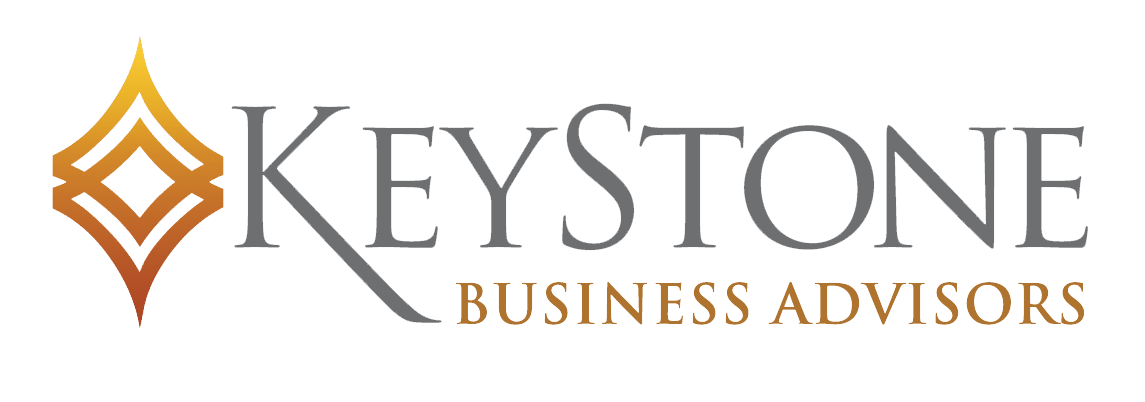
Getting the Most out of a Partnership Agreement

As an entrepreneur and business owner, your partnership agreement stands as one of the most important business documents you will sign. Business structures can be as complicated as the people that create those businesses. Quite often, business owners create businesses with friends or loved ones and, as a result, will not have a proper partnership agreement in place.
It’s important to note that not having a partnership agreement in place is a mistake. There are too many unknowns and too many variables not to have this essential document. You need a legal framework to protect your business from the vast array of potential pitfalls that may have an impact.
The Key Elements of a Solid Partnership Agreement
At the top of the list of every partnership agreement is a clear outline and understanding of rights and responsibilities. All too often partnerships run into trouble as the rights and responsibilities of the parties aren’t clearly thought through and then outlined in a partnership agreement.
Mapping out rights and responsibilities will help eliminate problems in the future. A partnership agreement should be seen as a serious legal document. As such, it is prudent to work with an experienced lawyer in the area of partnership agreements.
What Every Partnership Agreement Should Address
At the top of the list, every partnership agreement should address how money is to be distributed and which partner(s) will receive a draw. The issue of who will contribute funds so that the business becomes operational should be very plainly spelled out in the partnership agreement. A failure to address this issue could end the business before it even gets off the ground.
Issues such as what percentage each partner will receive and who will be in charge are two additional key areas that should never be overlooked. In terms of issues that are frequently overlooked by those forming a partnership, it is common for those forming a partnership to overlook long-term issues such as what is to happen in the event of the death of a partner, what steps are to be taken to bring in a new partner, and how business decisions are made.
Without a solid partnership agreement in place, business owners may find themselves in the last place they want to be, namely, court. A lengthy court battle can weaken your business in a very wide range of ways including a hit to company morale as well as the loss of key customers and employees. A legal battle between business partners can destroy what would otherwise be a healthy and thriving business.
The time you invest in the creation of a business agreement is time and money well spent. In fact, it is safe to state that a business agreement might just turn out to be one of the greatest investments you ever make.
Copyright: Business Brokerage Press, Inc.
Jirapong Manustrong/BigStock.com
The post Getting the Most out of a Partnership Agreement appeared first on Deal Studio – Automate, accelerate and elevate your deal making.
How to Sell a Manufacturing Business in California for Maximum Value
When it comes to selling a manufacturing business in California, there are many factors that can influence the value you receive. From market conditions and industry trends, to the quality of your product and your reputation in the industry, there are many factors that will impact the success of your sale. However, with the right strategy, preparation and understanding of the market, you can achieve a maximum value for your manufacturing business when you sell it.
Understanding the Market
The first step in achieving maximum value when selling a manufacturing business in California is to understand the market. This includes conducting research on industry trends, market conditions, and the competition. This research will help you to identify opportunities for growth and areas of weakness in your business, as well as help you to understand the demand for your products. This information will be essential in preparing your business for sale and will help you to make informed decisions about pricing, marketing, and negotiating the sale.
Preparing Your Business for Sale
Once you have a solid understanding of the market, the next step is to prepare your business for sale. This includes evaluating your operations, products, and services to ensure they are of the highest quality, and making any necessary improvements. It also involves cleaning up your financial records, preparing a detailed business plan, and creating an accurate representation of your business’ value. This preparation will help to attract potential buyers and increase the perceived value of your business.
Determining the Value of Your Business
The next step in achieving maximum value when selling a manufacturing business in California is to determine the value of your business. This involves considering factors such as revenue, earnings, and assets, as well as market conditions and industry trends. You may also want to consider hiring a professional appraiser, business broker or M&A advisor to help you determine the true value of your business. This will help to ensure that you receive a fair price for your business and will give you a baseline for negotiating the sale.
Marketing Your Business
Once you have prepared your business for sale and determined its value, the next step is to market your business to potential buyers. This includes creating a professional sales brochure, advertising your business, and reaching out to potential buyers. It is also important to choose the right sales approach for your business, such as listing your business for sale through a broker or selling it yourself through a direct sale. Whichever approach you choose, it is important to focus on marketing your business effectively, to reach as many potential buyers as possible.
Negotiating the Sale
Finally, the last step in achieving maximum value when selling a manufacturing business in California is to negotiate the sale. This involves working with the buyer to determine a mutually agreed-upon price, and to come to terms on the terms and conditions of the sale. It is important to have a solid understanding of the market, the value of your business, and the needs and desires of the buyer, to be able to negotiate the best possible sale. With the right approach and preparation, you can achieve maximum value when selling a manufacturing business in California.
Conclusion
Selling a manufacturing business in California is a complex process that requires careful preparation and understanding of the market. From determining the value of your business, to marketing it effectively and negotiating the sale, there are many factors that will impact the success of your sale. However, with the right strategy and preparation, you can achieve maximum value for your manufacturing business when you sell it. Whether you choose to sell your business through a broker or through a direct sale, it is important to focus on marketing your business effectively, preparing it for sale, and negotiating the best possible deal for yourself.
Read More5 Ways To Prepare To Sell Your Business

Preparing To Sell Your Business
Preparing to sell your business can be something you do in a month, or an exit plan can be built into your company from the very start. How to prepare to sell my business is just one of many frequently asked questions we receive. No matter if you are just starting to contemplate the sale of your business or if this has been your desire for a long time, there are a few ways to prepare yourself to sell your business.
1. Prepare Yourself Emotionally To Sell Your Business
A lot of business owners are surprised when they feel emotional about selling their business. Having operated their business logically and knowing it was time for them to leave and retire, it can come as a surprise the amount of emotion behind selling your business. Hiring a business broker to sell your company can help manage the emotions of selling a business. A broker can help manage negotiations as well as the marketing aspects of selling your business. This can remove you and the emotions involved in selling your business.
2. Train Your Employees
If you are planning on selling your business, your employees must be prepared to operate your company without you there. If you have ever gone on vacation and returned after a week or two, you can quickly see the weak areas of your business operations that need to be attended to. Making sure your employees are trained and have the support they need without you there is vital to the survival of your business after you sell it.
3. Get Your Company’s Financial Information Together
Take time to get all of your company’s financial information together and organized. When you are preparing to sell your business, having access to past financial records and information is important for two reasons.
- Financial Transparency: Having financial transparency with a potential buyer will make them more interested in buying your company because they will have a better understanding of your company’s value
- Your Business’s Value: In order to determine your business’s value access to the past 3 years of taxes is needed. This will not only help you display your gross profit but expenses as well as your investments.
4. Get A Business Valuation
One of the first steps to selling your business is getting a business valuation. In order to sell your company, you need to know how much it is worth. At Keystone Business Advisors we will work with you to determine the value of your business and then we will help market your business with that listing price.
5. Increase The Value Of Your Business
If you are planning on selling your company, it is a great idea to take measures to increase the value of your business. Many businesses that are investing in their own growth are already increasing their business’s value, but it is always a great idea to reflect on what your company can do better. Doing this will improve the quality of the business you sell and increase the business’s listing price.
Contact Keystone Business Advisors To Sell Your Business
Learn more about preparing your business to sell and contact Keystone Business Advisors to help you sell your business. Selling your business through us requires no money upfront since there is no fee until your business is sold. Our unique approach is focused on quality business that we sell to qualified buyers. Contact us today.
Read More6 Tips and 90 Days to Protect Your Business

There can be no way around it, Inc. contributor Brian Hamilton’s April 2020 COVID-19 centered article, “6 Actions to Take in the Next 90 Days to Save Your Business,” isn’t pulling any punches. Hamilton, Founder of the Brian Hamilton Foundation, believes that the next 90-days could be make or break days for business owners looking to navigate the choppy waters of the COVID-19 pandemic. His latest Inc. article provides readers with 6 actions they should take now to survive the economic fallout of the COVID-19 pandemic.
Tip #1 Vigorously Control What You Can
Hamilton’s first tip is to “Vigorously control what you can. Vigorously ignore what you can’t control.” As Hamilton points out, you can’t control the economy; instead, you need to focus on what you can control. His view is that there has never been a more important time to focus, “More than ever, you’ll need to go to war with things within your control.” Now is the time to exercise control.
Tip #2 Guard Morale
During tough economic times, employee morale can be a real issue. This brings us to Hamilton’s second point, “guard employee morale.” Significant drops in employee morale can lead to serious problems with your business, which is exactly what you don’t want to see right now. Hamilton notes that you have to be the general that helps his or her troops rise above potential panic.
Tip #3 Preserve Cash
Hamilton’s third tip is to “preserve cash where you can.” He states, “Right now, your motto should be: Live to fight another day.” The pandemic means that you need to keep expenses down and watch every dollar. No one knows what the next few months, or the next couple of years, could have in store.
Tip #4 Be First in Line
“Be first in line,” is Hamilton’s fourth point. Hamilton wisely pushes business owners to be the first in line for government assistance. This is very good advice, as SBA and other funds are likely to be limited.
Tip #5 Get Back to the Basics
Fifth, Hamilton recommends, “Get back to the basics…starting with monomaniacal customer service.” As always, customers, whether existing or new, are the lifeblood of your business. You can’t afford to lose customers now and for this reason, you need to have a laser-like focus on customer service.
Tip #6 Pivot your Product or Service
Hamilton’s sixth tip is to “Pivot your product or service to new conditions.” Small changes to your business can open up new streams of revenue. Even if these streams of revenue are comparatively small, they could mean the difference between sink or swim! Try to step back and look at your business with fresh eyes and strive to find ways to offer something new to your customers. Whatever you offer should be based on your existing goods and services and not require a new, large expenditure.
The COVID-19 pandemic is obviously disruptive, but it won’t last forever. Hamilton’s advice of focusing intensely on the next 90 days is sound advice. You won’t regret looking for ways to safeguard your business for the next 3 months.
Copyright: Business Brokerage Press, Inc.
The post 6 Tips and 90 Days to Protect Your Business appeared first on Deal Studio – Automate, accelerate and elevate your deal making.
How Our Approach Differs
1. Selective
There are several reasons why a business owner has an interest in selling their business. We have found it important to work with those clients who are truly motivated to sell their business rather than follow the philosophy “anything is for sell at the right price”. Unfortunately, the right price is often not one which is in line with the market. We are not adding value for our clients or ourselves by marketing a company that is priced well above the market. We do company and industry research, provide an opinion of value for all our clients and have a good understanding of what the market will bear. We are also selective in the sense that if we believe a business is not prepared to go to market in the near term or there is not enough earnings being generated, we will make recommendations for areas of improvement to better prepare the company for sale in the future as well as make introductions to key resources which can help improve business performance.
2. Comprehensive Marketing Program
The KeyStone marketing program is designed to reach the maximum number of potential buyers without compromising your identity.
Confidential Business Review. The marketing program starts us creating an in-depth 10 to 20 page Confidential Business Review (CBR) which is the marketing package we present to prospective buyers after they have been pre-qualified. The CBR provides a thorough overview of the key aspects of your business including; description of the business and the industry it serves, history of your business, description of product and/or services, operational overview, roles and responsibilities of the management team and/or key employees, customer and market overview, summary of financial information and sustainability of earnings. We have found that you only have one time to make a first impression, and an effective marketing package will help do just that.
Maximize Market Exposure. A key value we have been able to add for our clients is our ability to market your business to a broad spectrum of buyers, confidentially. Quite simply, the wider the net, the bigger the fish we can catch. We typically take recommend the following three prong approach for most of our clients which include:
Confidential Online Advertising. We are not unique in marketing your business online as this is a common industry practice. However, we do have strict internet marketing standards which include the following:
-
- All online advertising is discrete and to maintain confidentiality.
- All marketing copy is tailored for your specific business/industry.
- We pay for premium posting placement to help your business stand out from the rest.
- We advertise on up to 10 different websites depending on the size and type of your business. Sites may differ depending is buyer is a financial, strategic or private equity buyer.
Broad Buyer Database. We have developed a database of thousands of buyers which we categorize by industry and size of business. It is not uncommon for us to introduce your business to someone we have meet with or spoken with over the past 10 years. We have developed relationships with financial, strategic, private equity groups and search funds, all of which we maintain in our proprietary database.
Strategic Buyer Search. One of our key differentiators is that we actively target strategic buyers and not just rely on internet advertising. Our strategic buyer search is tailored for your specific business depending on the type, size and other circumstances for your business. We utilize a third party database which provides us access important information such as annual gross sales, number of employees, contact information for the business owner, all of which we can search by industry segment. We often start by sending prospective buyers a letter which provides a high level overview teaser of your business and follow up with a call directly to the business owner or sometimes the business development representative for our targeted acquisition candidates.
3. Upfront Due Diligence
When keystone was founded in 2004, it was built based on the philosophy that the extra time we spend on the front end to ensure that our clients business is presented honestly and in the best possible manner will ensure a smoother transition process and yield better results for all on the back end. This requires that we conduct upfront interviews with you to better understand your business, its key value drivers as well as its challenges. We conduct industry research and provide an opinion of value report for all our clients to ensure that the business is not over or underpriced. We work with you and/or your advisors to recast the last three years of financial statements to account for all discretionary expenses which could add profit to the bottom line which results in a greater value for your business.
4. Hands On Approach
Starting with our initial face to face meeting, through presale planning, valuation and pricing, creation of marketing package and program, buyer qualification, offer preparation and negotiation, due diligence, transition planning and post-closing follow up, KeyStone offers a hands on approach to keep things moving forward in an orderly manner to ensure that sensitive information is protected, uncertainty is avoided and the best price is achieved.
Read More